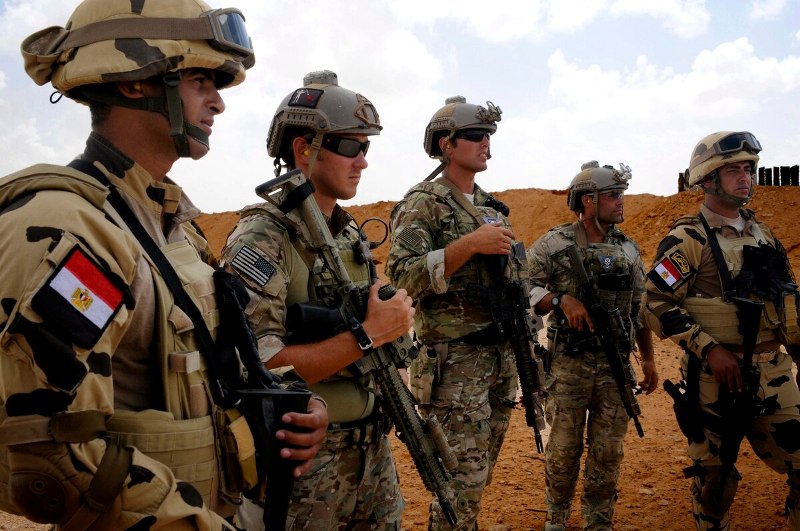
Military Crimes: How the Military Justice System Works
Members of the military have to obey civilian laws but they also have to obey military law. When someone joins the Army, Navy, Air Force, Marines, or Coast Guard, they must abide by the Uniform Code of Military Justice (UCMJ). This code defines military crimes and outlines a procedure that will be followed if a soldier commits a crime.
It’s tempting to think of the worst war crimes when we mention military crimes, yet there is a huge range of misdeeds that count as military crimes. Understanding what acts the military defines as crimes under the UCMJ is as important as understanding how the military justice system works.
Whether you’re an active member of the military or thinking of joining, knowing this information before you join is of vital importance. In this article, we’ll take a look at what the UCMJ entails and how the armed forces treat crimes.
Ready to find out more and get informed? Then read on.
What Are Considered Military Crimes?

Military crimes cover a huge range of different offenses. In the UCMJ, you’ll find the normal civilian crimes such as theft, murder, sex offenses, and more. Yet some crimes are specific to the military such as insubordination, war crimes, and desertion.
If you’re wondering why military crimes and punishments are not handled by civilian courts, it’s because the military sees it as important for unit cohesion and discipline. If justice is not seen to be swift, servicemen and servicewomen may perceive there to be a lack of rules, which will encourage further rulebreaking. It is also a matter of national security to ensure that our armed forces are disciplined and obedient.
What Rights Do Servicemen and Servicewomen Have?
The UCMJ does provide certain rights to our men and women in uniform, as well as outlining rules that personnel need to obey. It provides for a military defense attorney or a civilian attorney, to represent the defendant.
The military cannot force you to answer questions without an attorney present, nor are your protections against unreasonable search and seizure affected. You also, importantly, have the right to a fair trial. Yet military trials are very different from civilian ones, which we’ll cover more later.
Disciplinary Procedures Under the UCMJ: Article 15s
Depending on the severity of the offense, there is a number of different disciplinary procedures that may be put into action. There are several different types of court-martial but for minor offenses, the military won’t use these.
What Are Article 15s?

If you’ve committed a minor offense, your commander will impose an Article 15. This is the most common disciplinary procedure and does not require a military court. Your commander will need to have proof that you’ve committed the crime in question.
If you accept the Article 15, there are several punishments that your commander can impose:
- You can lose a rank
- Your commander can fine you most of a month’s pay
- Your commander can confine you for up to eight days
- Formal reprimand
- Extra duties for a week
- Restriction for a week
You can decide whether to accept or reject an Article 15 and have the right to legal counsel before you decide. If you reject the Article 15, you can ask for a court-martial instead. These allow you to argue your case but if you’re found guilty, you can get a criminal record and worse punishments.
Types of Court-Martial
There are several different court-martials that you can face depending on the severity of your offense. These vary in the punishments they can proscribe and differ from civilian courts in multiple ways.
Summary Court-Martial
A summary court-martial is used for military crimes that would be punished by an Article 15 if the Article 15 is rejected. Only enlisted personnel are tried in these court-martials. A commissioned officer serves as the judge and there’s no jury: punishments are similar to those imposed by Article 15s but can be harsher.
Special Court-Martial
The military uses special court-martials for more severe crimes. A military judge will oversee the case and there will be a panel of at least three other service personnel. If you are an enlisted man or woman, you can request that a third of the panel is enlisted personnel.
You can also ask to be tried by the judge with no panel.
If you are found guilty, a special court-martial can:
- Issue you a bad conduct discharge
- Confine you for up to a year
- Reduce you to E-1 paygrade
- Reduce your pay to one-third of normal pay for the next 12 months
General Court-Martial

These court-martials are used for the most severe military crimes and can impose more severe punishments. In this court, there is a military judge, a panel of at least five personnel, and prosecuting and defense attorneys. The same rules regarding the accused’s panel rights apply as in a special court-martial.
If you are found guilty by a general court-martial you can be sentenced to life imprisonment and even death, depending on the offense.
Right of Appeal
The overwhelming majority of court-martials end in convictions. If the court convicts you, you have the right to argue for a reduced sentence and can also appeal the conviction.
Any convicted personnel get the right to appeal their case and take it to the Court of Criminal Appeals. You can also appeal to the United States Court of Appeal for the Armed Forces and the Supreme Court if necessary, yet you do not have an automatic right to get your case heard in these courts.
Final Thoughts
Understanding military crimes, and the process that will follow if you are suspected of committing one, is of vital importance to any service personnel. If you would like to read more informative articles like this one, take a look at our Lifestyle section!




